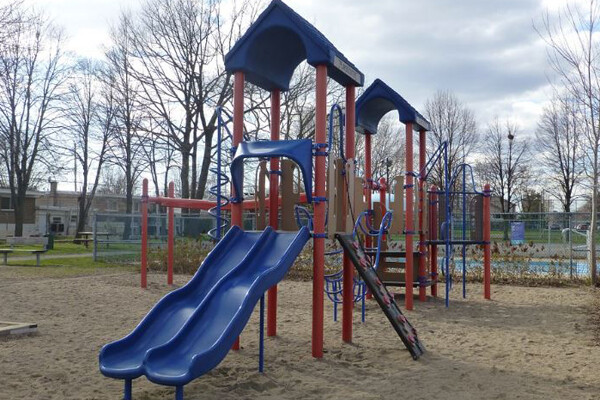
Seoul, South Korea – A recent survey conducted by the Korea Consumer Agency has revealed a concerning state of safety in playgrounds located within aging apartment complexes in Seoul and Gyeonggi-do. Out of the 32 playgrounds inspected, over 90% were found to pose significant safety hazards to children.
The investigation focused on playgrounds in apartment complexes that had been in use for 25 years or more. The results, released on [Date], highlighted severe maintenance issues, including corrosion of metal structures, broken equipment, and peeling paint on playsets. Additionally, some rubber flooring materials tested positive for harmful substances, including potential carcinogens.
Of the 32 playgrounds examined, a staggering 29 (90.6%) exhibited safety concerns, while only three (9.4%) were deemed to be in satisfactory condition. Common issues included corroded metal frames, damaged steps and seats, and peeling paint on handles and railings. Moreover, 19 playgrounds (59.4%) had rubber flooring that was hardened or damaged, creating tripping hazards and exposing children to loose rubber chips.
Despite legal requirements mandating monthly self-inspections and biennial professional assessments for playground equipment, many of the inspected playgrounds fell short of these standards.
Furthermore, the study underscored the need for stricter regulations regarding the materials used in playground flooring. While seven playgrounds met the environmental health standards for rubber flooring, six others exceeded the permissible limits for polycyclic aromatic hydrocarbons (PAHs) when compared to standards applied to school athletic facilities. Additionally, three playgrounds had elevated lead levels. Both PAHs and lead are classified as carcinogens or potential carcinogens by the International Agency for Research on Cancer (IARC), and their presence in playground materials poses a significant health risk to children.
The consumer agency has shared the findings with the relevant authorities and has urged them to take immediate action to address the identified issues, including repairs, replacements, and enhanced safety inspections.
The agency also highlighted the persistent problem of playground-related accidents, with over 1,000 incidents reported annually in recent years. This underscores the urgent need for improved safety measures and stricter enforcement of existing regulations.
[Copyright (c) Global Economic Times. All Rights Reserved.]






























